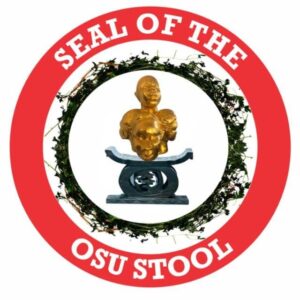
OccupyGhana, a pressure group, is demanding a return of the 361 government vehicles sold to appointees of the erstwhile Mahama administration at what it describes as “yor kɛ gari” prices.
The call follows assurances by both President Nana Akufo-Addo and former President John Mahama to put an end to the purchase of duty post vehicles by political appointees.
President Akufo-Addo told his ministers on April 11 2017 that officials are no longer going to have the opportunity to buy any official car.
For his part, former President Mahama on January 17 2020 said, if elected back to office, he would “put an immediate and permanent end to the purchase of duty post vehicles by political appointees”.
While it agrees with the pronouncements by both the former and current presidents, OccupyGhana is demanding proof that the government followed the Public Procurement Act in the sale of the 361 vehicles to appointees of the NDC between December 29 2016 and January 6 2017 or a return of all the vehicles to the government.
The group noted in a press statement issued yesterday that until the cars are retrieved and the laws applied with sanctions, there is no guarantee that it would not be breached again.
Surprising prices
The statement described the prices at which the cars were sold as “surprising”, adding that the “vehicles were simply handed over to political appointees at ‘yor kɛ gari’ prices, all in flagrant breach of the law.”
According to the statement, a Toyota Camry registered in 2014 was sold in 2016 for GHS12, 500; a Toyota Corolla commissioned in 2013 and registered in 2015 was sold for GHS6, 000; while another Toyota Corolla, commissioned and registered in 2016, was sold also for GHS6,100.
In another instance, a one-year old Nissan Sunny went for GHS7, 500; a Toyota Avensis was sold for just GHS1, 200; while BMWs were sold to the more prominent appointees at GHS25, 000.
Disregard for law
The group noted that the passage of the Public Procurement Act in 2003 introduced a mandatory procedure for disposing of government “stores, plant and equipment.” That procedure involves establishing a board of survey, obtaining a technical report and recommendations and, ultimately, the sale of only “obsolete or surplus items” by public tender to the highest tenderer or public auction subject to a reserve price.
“The ridiculous and risible excuse from those governments was that the words ‘stores, plant and equipment’ in the law did not specifically apply to vehicles,” said OccupyGhana
With pressure from civil society and several others, Parliament in June 2016 amended section 83 and introduced a new section 83A to the 2003 Public Procurement Act, so that the mandatory procedure for disposing of government assets would specifically apply to government vehicles.
“Thereafter, one would have expected that the government would comply with this new law. However, in a period of just nine days starting from 29th December 2016 and ending on the night before the handover of power on 7th January 2017, and while Ghanaians were focused on the political transition, there was this massive sale of government vehicles to departing political appointees in apparent disregard and breach of the law, at an average of 40 cars per day!” the statement indicated.
Retrieval attempts
According to OccupyGhana, several attempts to get the NPP government to retrieve the cars have proved futile.
Narrating instances where the group made follow ups on the vehicles, the statement said that on March 28 2017 the group wrote to both the Chief of Staff and the Administrator-General inquiring whether the government followed the law in those disposals.
After several months of waiting without response from either office, reminders were sent on January 30 2018.
“This time we received a response from the Administrator-General on 7th February 2018 providing us with a schedule and details of the 361 ‘vehicles disposed of as end-of-service benefits to political appointees,’ the names of the beneficiaries, and how much they were sold for,” the statement added.
On February 14 2018, the group again wrote back to the Administrator-General demanding data on disposal of assets since 2003, but was told that the office did not have that data since it only came into existence in 2013.
“Our further letter to the President dated 17 July 2018 demanding a full-scale inquiry into the matter has received neither a response nor any action,” the group lamented.
Worrying
The pressure group says the lack of response is particularly worrying, when viewed against the fact that section 92 of the Act criminalises breaches of its provisions and makes the liable to be jailed for up to five years.
The group adds that, in the light of the above, it remains “unconvinced by the assurances made by the immediate past president and the current president to end this practice.”
“We note that they still fail to acknowledge the sheer illegality of it. That is why we believe that the best way to assure Ghanaians that this practice is or will be a thing of the past, would be to satisfy Ghanaians that the December 2016 sale of 361 government vehicles was in accordance with the law. If not, we expect the government to rescind those sales forthwith,” the group demanded.








